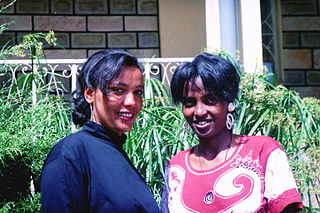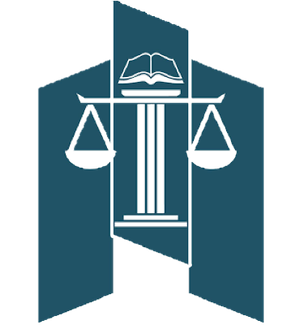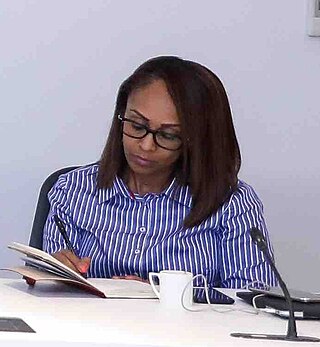
The government of Ethiopia is the federal government of Ethiopia. It is structured in a framework of a federal parliamentary republic, whereby the prime minister is the head of government. Executive power is exercised by the government. The prime minister is chosen by the lower chamber of the Federal Parliamentary Assembly. Federal legislative power is vested in both the government and the two chambers of parliament. The judiciary is more or less independent of the executive and the legislature. They are governed under the 1995 Constitution of Ethiopia. There is a bicameral parliament made of the 108-seat House of Federation and the 547-seat House of Peoples' Representatives. The House of Federation has members chosen by the regional councils to serve five-year terms. The House of Peoples' Representatives is elected by direct election, who in turn elect the president for a six-year term.

Asosa or Assosa is the capital of Benishangul-Gumuz Region, Ethiopia. Located in the Asosa Zone, this town has a latitude and longitude of 10°04′N34°31′E, with an elevation of 1,570 meters.

The number of women in the United States judiciary has increased as more women have entered law school, but women still face significant barriers in pursuing legal careers.

There have been several studies concerning women in Ethiopia. Historically, elite and powerful women in Ethiopia have been visible as administrators and warriors. This never translated into any benefit to improve the rights of women, but it had meant that women could inherit and own property and act as advisors on important communal and tribal matters. As late as the first part of the 20th century, Queen Menen, consort of Emperor Iyasu IV, had a decisive role in running the Ethiopian Empire. Workit and Mestayit regents to their minor sons have been held responsible for their provinces. They owed their rights to landed property because of a special type of land tenure that expected tenants to serve as militia to overlords, irrespective of gender. In 1896, Empress Tayetu Betul, wife of Emperor Menelik II, actively advised the government and participated in defending the country from Italian invasion. Prominent and other landowning women fought against the second invasion in 1935–41. With the assistance of European advisors, women in the ensuing period were kept out of the army and politics, even as advisors. Instead, they were restricted to family and household work of raising children and cooking. With a steady increase in female representation in education, they have started to undertake nursing, teaching, and other similarly supportive roles. Over the 2018–2019 period, their gradual participation in state politics has been increasing at a steady pace.

Birtukan Mideksa is an Ethiopian politician and former judge who has served as chairwoman of the National Election Board of Ethiopia (NEBE) from 2018 to 2023. She was the founder and leader of the opposition Unity for Democracy and Justice (UDJ) party from 2008 to 2010.

Yetnebersh Nigussie is an Ethiopian lawyer and disability rights activist. In 2017, she was awarded the Right Livelihood Award for "her inspiring work promoting the rights and inclusion of people with disabilities, allowing them to realise their full potential and changing mindsets in our societies."

Difret is a 2014 Ethiopian drama film written and directed by Zeresenay Berhane Mehari. The film had its premiere in-competition at the 2014 Sundance Film Festival where it won the World Cinematic Dramatic Audience Award. Angelina Jolie served as the executive producer of the film.
Hilina Berhanu Degefa is an Ethiopian women's rights activist and researcher. She is a co-founder of The Yellow Movement, a youth-led feminist advocacy and empowerment program based in Addis Ababa and Mekelle University. She was a 2015 recipient of a Mandela Washington Fellowship for Young African Leaders, the youngest to receive the honor at the age of 22. Hilina is also a Women Deliver Young Leaders Fellow, class of 2020. She is the first Ethiopian civil society representative to brief the UN Security Council.
Atsedeweine Tekle Riggio is an Ethiopian lawyer and jurist who was the country's first female judge, serving on both the High Court and the Supreme Court.
Meron Getnet is an Ethiopian actress, political activist, journalist and poet. She was known for her critique toward governmental stance during Meles Zenawi administration. A revered film and TV star in Ethiopia, she is best known for her role as Meaza Ashenafi in the critically acclaimed film Difret.

The Federal Supreme Court of Ethiopia is the highest court in Ethiopia. It was established by the Federal Democratic Republic of Ethiopia constitution in 1994 and is currently located in Addis Ababa. Article 78 of the Constitution establishes the judiciary and at the top is the FSC. By the Constitution, the Federal Supreme Court has "the power of cassation over any final court decision containing a basic error of law". In 2018, Prime Minister Abiy Ahmed appointed Meaza Ashenafi to be the first female president 0f the Federal Supreme Court. Solomon Areda Waktolla was appointed as Vice President of the Federal Supreme Court. Both were resigned by the Parliament on 17 January 2023, and replaced by Tewodros Mihret and Abeba Embiale as Chief Justice and Deputy Chief Justice of the Supreme Court respectively.

Billene Seyoum Woldeyes is an Ethiopian politician, poet, author and feminist who is serving as the Foreign Press Secretary for the Office of Prime Minister of Ethiopia since 5 November 2018. Billene speaks as the prime minister's foreign spokesperson in English.

Solomon Areda Waktolla is an Ethiopian lawyer who had served as the Deputy Chief Justice/Vice President of the Federal Supreme Court of Ethiopia from 2018 to 2023. Solomon is a prominent lawyer with 25 years of experience in the practice of law, public administration and policy research who is committed for seeing a free and independent judiciary in Ethiopia. Justice Waktolla served in the Ethiopian Judiciary mainly as a judge for 20 years on different levels of the court in both regional and federal positions. In addition, he has been appointed to the membership of the Permanent Court of Arbitration (PCA) at The Hague, Netherlands for a six-year term to serve as an Arbitrator. Justice Solomon Waktolla was appointed on 15 November 2022 by the UN General Assembly as a Half-time Judge of the United Nations Dispute Tribunal for a mandate starting on 1 July 2023 and ending on 30 June 2030. In addition, He has been appointed by the Board of Directors of the African Development Bank as a Judge of the Administrative Tribunal of the African Development Bank, effective from November 2023. Justice Waktolla is an accomplished judge and jurist with many years of legal and judicial work experience at both national and international levels.
Zelalem Kibret is an Ethiopian human rights activist and legal scholar. He emigrated to the US in 2016.

Since the new constitution of Ethiopia enacted in 1995, Ethiopia's legal system consisted of federal law with bicameral legislature. The House of People's Representatives (HoPR) is the lower chamber of bicameral legislature of Federal Parliamentary Assembly with 547 seats and the House of Federation with 108 seats, the former vested on executive power of Prime Minister and the Council of Ministers, and the latter have authority to interpret federal law and oversees regional and federal decisions.

The judiciary of Ethiopia consists of dual system with parallel court structures: the federal and state courts having independent administration. The FDRE Constitution vested federal authority to the Federal Supreme Court which is cassation division and presides determining and overturning decisions made by the lower federal courts with itself has regular division assigned to review fundamental errors of law. Article 3, 4 and 5 stipulates the governance of federal courts over national and international aspects.
Tewodros Mihret is an Ethiopian lawyer and academician who is serving as the President of the Federal Supreme Court of Ethiopia since 17 January 2023, succeeding Meaza Ashenafi.
Abeba Embaile Mengiste is an Ethiopian judge who is currently serving as Vice President of the Federal Supreme Court of Ethiopia since 17 January 2023, she was appointed with Tewodros Mihret by the House of Peoples' Representatives (HoPR).
Maria Munir Yusuf is founder and directress of the Association for Women's Sanctuary and Development in Ethiopia. She also co-founded the Ethiopian Women Lawyers Association in 1995.











